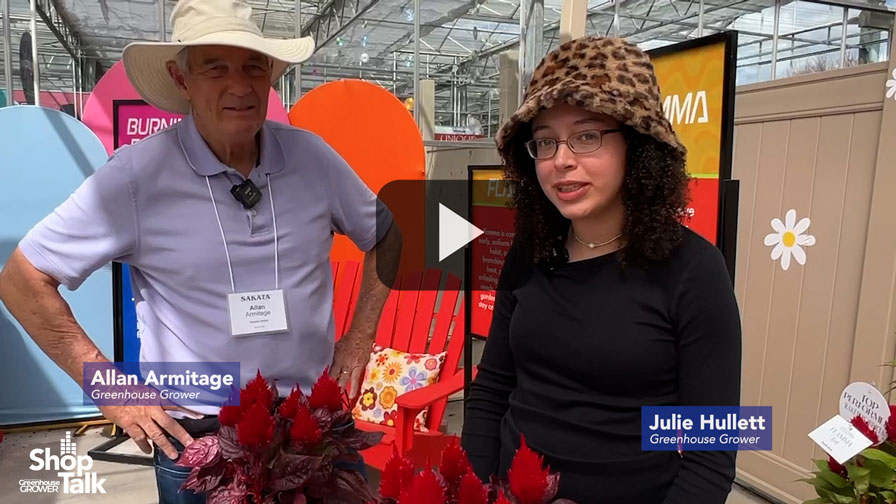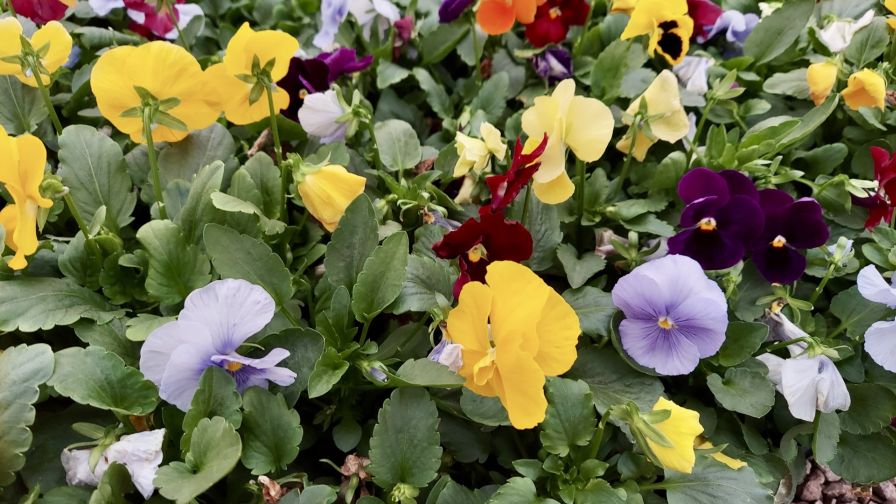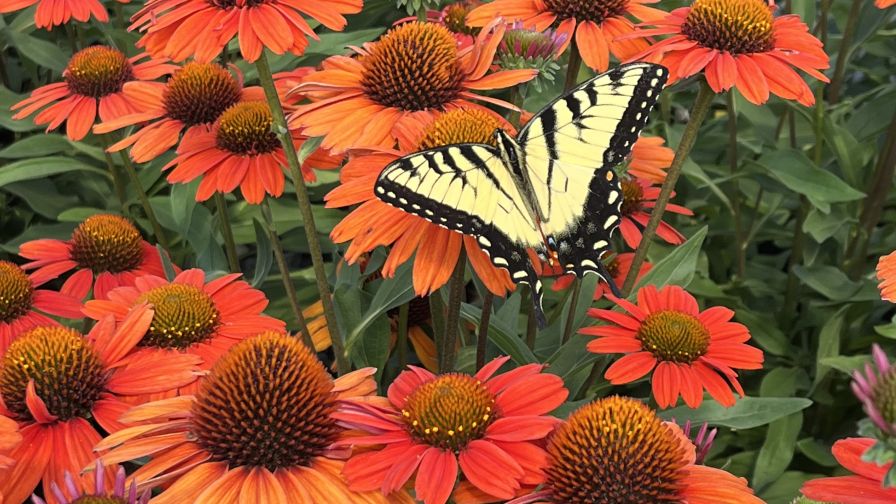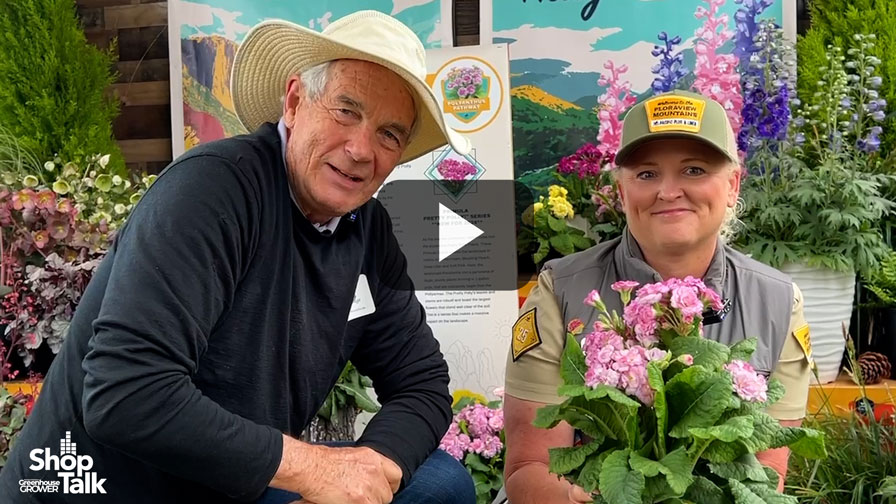Allan Armitage: Why You Should Focus on the Functionality of New Plants
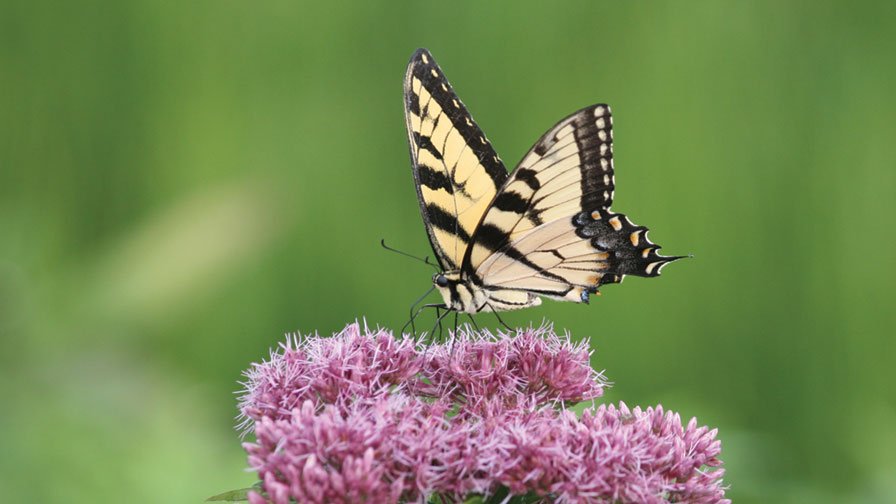
New plants are great, but how about more plants with a purpose, like better pollinator plants. Photo credit: Janeen Wright
I travel to industry events throughout the year, where I talk with and listen to breeders, growers, retailers, landscapers, and gardeners. Like the rich getting richer and the poor getting poorer, I see the gap between what’s new and what works ever widening.
The Thrill of New Plants is Fading
This is true whether we admit it or not.
Let’s understand the evolution of new plants. Twenty years ago, we needed new plants. We needed better begonias, newer petunias, and improvements in hydrangeas, lantanas, and coneflowers. Ten years ago, we started to understand that what is new to the consumer is likely three years old to the industry, and five years ago, we started to hear some industry people and lay people, suggesting that new was not always better. In fact, it’s just the opposite. This comment not only persists today, it is getting louder. And now we are dealing with Millennials who want to decorate rather than garden, and landscape designers whose two most important criteria are low maintenance and cost. Breeding one more hydrangea or echinacea is really not that important to them.
Before I dig myself into too large a hole, let me assure you that I am a believer in new crops. I introduced new plants, I trialed new crops, and I have scoured breeders to communicate about what is new and why it’s special with the people with whom I consult. I will always believe that new crops are the lifeblood of our industry, but we need to be making less of a deal about them. It is true that nobody asks, “What’s old?”, but other than me and you, fewer “real” people are asking about what’s new, either.
Let’s Focus on Function
Of course, telling breeders to slow down is like telling President Trump to stop tweeting. However, I hope we could guide them in selecting plants for functionality, not to create one more series. By functionality, I mean working on plants that deer don’t eat (better lavenders, better hellebores, etc.) and rabbits don’t touch, native plants that are more compact and useful, and plants that mildew does not discolor. And breeders need to tell us what they are breeding for functionality, and how it makes a difference.
I know these programs are going on, but they still appear as just one more new plant. Tell us what the function is that you are breeding for, so we can tell everyone else.
At California Spring Trials, I don’t need to see a hanging this or that. I want to see a bona-fide deer-resistant breeding program that brings me yellow hellebores, for example. I want to get excited about a mildew program that allows me to sell a phlox for a reason. I would love to see a genuine pollinator program, with breeding for better pollinator plants. Tell me about the program and why it helps, not just about one more pretty lavender.
As for the retailers, work with producers who already have these functional programs — they are out there. Work with nurseries that can supply you with pollinator plants so you can specify an area specifically for bee and butterfly lovers, with flashy labels. Pollinators are currently the No. 1 talking point and passion for plant users everywhere.
Provide a rabbit-proof corner, a native area that is part of the pollinator bench, plants for kids (eyeball plant, stevia), plants simply to have fun, and on and on — all with flashy signage. Your garden center is not the library. My daughter wants instant information. Good grief, my grandkids need their hands held — but that is for another day.
At MANTS this year, I met nurserymen and women who realize that the function of the plant is just as important as its beauty. Find them and follow them.
Breeders, growers, and retailers can talk the same language: the language of purpose. I am not sure how many will, but those who keep their heads down and listen may be pleasantly surprised.
I will now step down from my soapbox and be calmly pelted by my critics. I will continue to support the development of new plants. It just would be nice if you helped me out a little.





